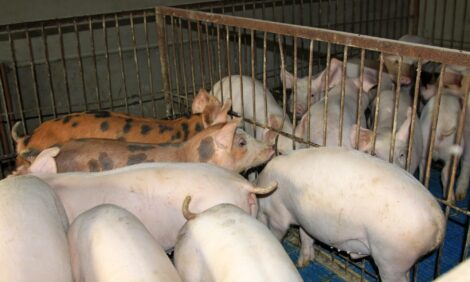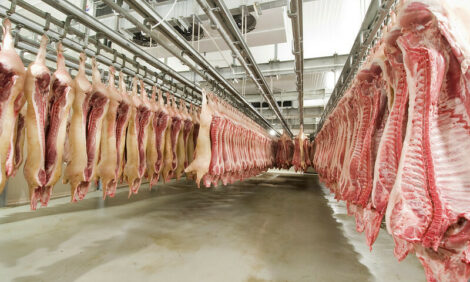



Genomics Has Potential for Canadian Pig Industry
CANADA - The Canadian Centre for Swine Improvement recommend more pig genotyping to maintain the country's position as a leader in genetic improvement, according to Jaydee Smith of the Ontario Ministry for Food, Agriculture and Rural Affairs (OMAFRA).The application of genetic markers in animal
breeding programs has advanced rapidly
over the last 20 years. From early
efforts which focussed on a single gene
(e.g. the halothane gene), the technology
and the knowledge of the genome has
developed tremendously. Researchers can
now work with commercially available
tests for over 64,000 genetic markers.
Economic benefits are expected to arise
using known markers and new discoveries
for specific genes. Another approach is to
try to estimate breeding values by evaluating
the genome using these high density
panels. This has been successful in the
selection of dairy bulls, and work is now
underway in pigs.
The sequencing of the pig genome and
the availability of the 64,000 marker test
signals a new generation of applications
for genetic improvement in swine, from
increased accuracy in selection to improving
traits, for example disease resistance
and pork quality. These tools can be used
to tackle traits with low heritability, that
are difficult to measure, that cannot be
measured in live animals, that can only be
measured in one sex, or can only be measured
later in life.
International collaborations are being discussed,
which will use the application of
genomics to improve swine health. PigGen Canada was recently formed to coordinate
the genetics sector on applications
of genomics, with swine health as a
top priority.
More genotyping of pigs with important
phenotypes along with related bioinformatics
research is required to maintain
Canada's position as a leader in genetic
improvement.






